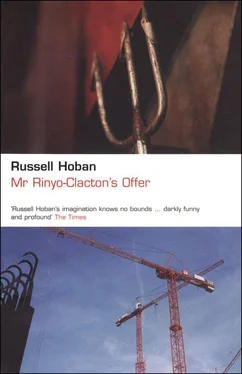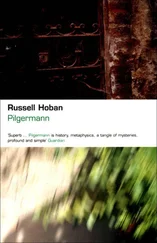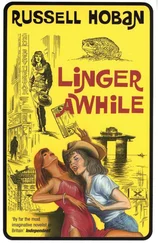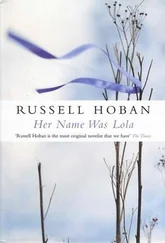I went to the British Museum to look at two of my favourite things: the first was the little bronze head of a goddess, probably Aphrodite (Greek, second century BC), found near Mersin, Cilicia: not a solid head, just a shell of the face and the front of the hair, almost a mask. Hauntingly beautiful, her face: thoughtful and compelling. Her painted eyes, viewed from above, were seductive; from below, full of doubt. Now they seemed more full of doubt than usual. I’d visited her many times but only this time did it occur to me that Aphrodite knew all there was to know about love. On the other hand, maybe she was an ignorant goddess who made all kinds of love happen but knew nothing about any of them.
This whole thing, I said to her, is about me and women, isn’t it?
No answer.
I went to the Assyrian Saloon and King Ashurbanipal’s lion-hunt reliefs from Kuyunjik to visit a particular lion, the one who grasps and bites the chariot wheel that pulls him up to his death on the spears of the king and his huntsmen. I looked into the shadowed eyes under the lion’s frown, fixed for ever in the tawny stone. There are two arrows in the lion and two spears; his stone rage and his stone dying have endured for more than twenty-five centuries.
This lion-hunt, apart from being a remarkable work of art, is interesting in that the king, with his carefully curled hair and beard, is only a generalised formal figure as are all the other humans; but the lions are individual tragic portraits. The lion grasping and biting the chariot wheel is undoubtedly the king of the lions, the one whose frown and shadowed eyes are fixed for ever on that mystery that he so violently embraces.
What do you think? I said to him.
His answer was his action; it was between him and the wheel — what else is there to hold on to?
It was an unusually warm day for October, and girls from everywhere were sitting on the museum steps. Life would go on, leaving me behind with the lion, the goddess, and the little dog Hendryk.
I went to see Katerina, feeling a little uncomfortable about it. My night with her now seemed a strange dream and I knew it wasn’t going to happen again. When she’d held the banknotes, her face, with the lips drawn back from the teeth in that dreadful rictus, had seemed almost a gorgon-face, full of a terrible power. Well, even Ashurbanipal had the help of a powerful grandmother.
With a no-bullshit modern psychic and clairvoyant no explanations are necessary: this meeting was strictly business. ‘You feel it?’ she said when we sat down at the table with the little bronze woman and the blue bell-flower lamp.
‘Feel what?’ I said as Mr Perez favoured us with the overture to La Forza del Destino.
‘How it all comes to a point now. Very soon the waiting is over and we see connections that we did not see before.’
‘Katerina, what do you know that I don’t know?’
‘I know nothing, Jonathan, but I can feel the shape of what’s below the fin that cuts the water. He also, this Rinyo-Clacton — he wants it to be over soon.’
I told her about our Paris plans. ‘Should we not go?’ I said. ‘Is there something else I should be doing?’
‘Don’t change whatever plans you have — go to Paris with Serafina and be open to whatever comes to you there. Enjoy yourself, even. You don’t have to jump whenever Mr Rinyo-Clacton rattles your cage.’
Melencolia, on my way out, favoured me with a look of genial contempt.
That evening I hired Bring Me The Head of Alfredo Garcia at the video shop. That film pretty well covers everything; I’d already seen it four or five times, and as I sat down to watch Warren Oates as the doomed Bennie I was wondering if there was any point in the story where he could have stepped out of the train of events that was bringing him to his death. Even at the end, though, he needn’t have died: he gave El Jefe the rotting head, El Jefe gave him the million dollars, and Bennie could have walked out of there with the money. But by then his woman had died in the quest for the head and the death in Bennie could no longer be held back: he killed El Jefe and his bodyguards and was himself shot dead in his car as he drove away. His death had been in him from the very beginning, only waiting its chance to come out.
I watched the film again and ended up feeling tough, fatalistic, and doomed. I could make it through three more nights alone; I could even water the plants.
28. The Tomb of Victor Noir
Racing through Kent, Eurostar was due at the Gare du Nord at 12:23. Really, I thought, why all this speed? Things are already coming at me much too fast. There were no vents through which thoughts could escape, and I was being suffocated by mine. Probably other people’s thoughts were adding to the air pollution as well. Why couldn’t they have a red circle on the window enclosing a brain with a diagonal red line through it?
‘Have you read this?’ said Serafina, showing me her book, The Wonderful History of Peter Schlemihl, by Adalbert von Chamisso.
‘Yes.’ I’d have felt better if she’d brought something else for the trip.
‘That’s quite an idea,’ she said, ‘selling your shadow to the Devil for a purse that never runs out of gold.’
‘He was sorry for it later when he lost the woman he loved.’
‘Well, she wanted all of him, didn’t she. What’re you reading?’
‘Carmen — not the opera but the Prosper Mérimée story.’
‘May I have a look? I want to see the ending.’ She found it and read aloud, ‘“She fell at the second thrust, without a cry. It seems to me that I can still see her great black eyes fixed on me; then they became dimmed and closed.”’
‘She told him she couldn’t love him any more, so he killed her,’ I said.
‘That’s one way of dealing with it. Do you think he’s on this train?’
‘Don José?’
‘Don José Rinyo-C. Do you think changing the booking did any good?’
‘Yes, I think he’s probably on this train, so it follows that I don’t think changing the booking did any good. But I don’t think he’s got rape and murder on his mind at the moment — he’s just fondling my unripe death while mentally replaying his afternoon with you.’
We ate sandwiches, drank tea, and were informed by a voice, first in English then in French, that we were entering the tunnel and would be out of it in twenty minutes. ‘What worries me,’ said Serafina as Eurostar plunged through the darkness beneath the English Channel, ‘is that maybe everything is connected by tunnels: you think A is separate from B but no, below the surface things are constantly sliding around and making connections.’
Monstrous creepy-crawlies came to mind, wet and slimy. ‘The things below the surface, they’re not all necessarily bad,’ I said.
‘They’re hidden though, aren’t they. You’ve no idea what’s there till it jumps out at you.’
I thought it best to say nothing for a while. Through the tunnel and out into France we read or closed our eyes in meditation. We were going to be in Paris for one night only, returning tomorrow morning. ‘What I don’t want,’ Serafina had said, ‘is some pathetic attempt to recapture what’s gone. I’m full of pointy thoughts and sharp edges and all I’m looking for is clarity. You want to see Au Tonneau and I want to see Victor Noir and that’s it, OK?’
Our passports were checked, and after a time the voice spoke again to say that the train had attained its maximum speed of one hundred and eighty-six miles an hour. Beside me Serafina was moving a little faster than that and leaving me behind. I wanted to taste her mouth, her body, I wanted her to be my Serafina again. I wanted never to have met Mr Rinyo-Clacton.
Читать дальше












